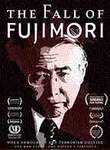 In a recent (excellently written) article byScott Warmuth, the issue of Dylan's alleged penchant for plaigarism has again risen its ugly head. (You can read the article here.) The most recent accusation is that many of the lyrics from Dylan's new album Modern Times were lifted from Henry Timrod, former Poet Laureate of the U.S. Confederacy. The previous accusation was that Dylan's Love and Theft borrowed heavily from a novel by Junichi Saga titled Confessions of a Yakuza. If you take a look at the evidence compiled against Dylan, the similarities are clear. If poor Bob were a student in one of my classes, no doubt I would have taken him down for attempting to pass off another's work as his own.
In a recent (excellently written) article byScott Warmuth, the issue of Dylan's alleged penchant for plaigarism has again risen its ugly head. (You can read the article here.) The most recent accusation is that many of the lyrics from Dylan's new album Modern Times were lifted from Henry Timrod, former Poet Laureate of the U.S. Confederacy. The previous accusation was that Dylan's Love and Theft borrowed heavily from a novel by Junichi Saga titled Confessions of a Yakuza. If you take a look at the evidence compiled against Dylan, the similarities are clear. If poor Bob were a student in one of my classes, no doubt I would have taken him down for attempting to pass off another's work as his own.But (and this is the point that Warmuth makes so eloquently in his essay), is catching Dylan in some Theify McThiefery really the point of his music? Do we really expect from songwriters the same strict sense of original expression that we expect from other writers? Isn't one of the great things about great songs the fact that they hit something strangely familiar? Or, even better, that they make something familiar suddenly, strangely, unfamiliar or new? I think one would be hard-pressed to prove that Dylan has ever been a radically "original" songwriter-- something that can doubtlessly be said about any American-influenced musician. Isn't it true that what is great about American music the fact that it all somehow derives from blues, country, gospel, or folk? And aren't all those musical forms just combination and re-combinations of the same 3 or 4 chords? the same 5 or 6 themes? the same handful of human emotions?
In my view, what has always been truly great about Dylan's music is its cryptic, compelling, fascinating, and maddening references. How many of us went and looked up "John Wesley Harding" after that album came out, or "Rubin Carter" after hearing Dylan's "Hurricane"? Or followed any other countless number of clues that Dylan so brilliantly embeds in his songs? Why do you think Dylan fans--and I mean the truely hard-core Dylan fans-- pride themselves on an almost encyclopedic and purist knowledge of his work? Dylan's music opens up the world in ways that few great songs are able... I, for one, will no doubt find myself embarking on yet another sleuthing trip after discovering this new Dylan reference to the poet Timrod. And I won't mind a bit that Dylan picked another intellectual pocket to send me there....


 I recently viewed the excellent documentary "The Fall of Fujimori" about Peruvian President Alberto Fujimori. Fujimori was elected President in 1992 on a populist platform, during a time when Peru was being sacked by both radical insurgent groups and abject poverty. As you can probably see from the photo (left), Fujimori's win was surprising, as he championed himself the "President of the People" while, literally, looking nothing like them. (During his administration, Peruvians often chanted "Viva El Chino!" and hailed him as "Our President the Chinaman.")
I recently viewed the excellent documentary "The Fall of Fujimori" about Peruvian President Alberto Fujimori. Fujimori was elected President in 1992 on a populist platform, during a time when Peru was being sacked by both radical insurgent groups and abject poverty. As you can probably see from the photo (left), Fujimori's win was surprising, as he championed himself the "President of the People" while, literally, looking nothing like them. (During his administration, Peruvians often chanted "Viva El Chino!" and hailed him as "Our President the Chinaman.")